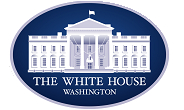Government/Policy

January 2, 2022
Biden Officially Implements EU TRQ, Eases S232 on Steel from Europe
Written by Michael Cowden
U.S. President Joe Biden has officially implemented a tariff-rate quota (TRQ) that will ease Section 232 restrictions on steel from the European Union.
“I have determined that specified volumes of eligible steel … imports from the EU will no longer threaten to impair the national security,” Biden wrote in a presidential proclamation.
![]() The president did not extend a similar deal to other nations. “I have determined that it is necessary and appropriate, at this time, to maintain the current levels as it applies to other countries,” he wrote in the proclamation, which is dated Dec. 27 and which you can find here.
The president did not extend a similar deal to other nations. “I have determined that it is necessary and appropriate, at this time, to maintain the current levels as it applies to other countries,” he wrote in the proclamation, which is dated Dec. 27 and which you can find here.
Japan and Great Britain are seeking deals like those negotiated with the EU. And South Korea, which agreed to a hard quota in exchange for exemption from Section 232 tariffs, also seeks a better deal with the U.S.
Recall that Section 232 tariffs – 25% in the case of steel imports and 10% for aluminum imports – were applied to most countries, including those in the EU, by the Trump administration in 2018.
The Biden administration in late October agreed to a TRQ, or soft quota, with Brussels that would allow 3.6 million short tons (3.3 million metric tonnes) to be imported from the EU tariff free. Any volumes over that amount remain subject to the U.S. national security tariff.
One important caveat: European steel is exempt from the 25% tariff only if it is melted and poured in the EU. That means steel rolled from slab or billet melted outside the region remains subject to Section 232 tariffs.
The new deal with the EU will remain in place through Dec. 31, 2023. But Biden said his administration would revisit the deal if necessary.
Note that U.S. presidents are limited in most matters by Congress and the courts. But in issues of international trade, the executive branch has broad power to act unilaterally.
Lobbying groups for the domestic steel industry cautiously cheered the implementation of the EU TRQ.
“We are particularly gratified that the president’s proclamation emphasizes that only steel melted and poured in the EU will benefit from this alternative arrangement,” American Iron and Steel Institute (AISI) President Kevin Dempsey said in a statement.
But enforcement will be critical given rising imports and falling domestic capacity utilization.
“Proper implementation and enforcement of the TRQ will be crucial to preventing another steel import surge that would undermine our industry,” Dempsey said.
The melted-and-poured language, previously a feature of domestic policy, is aimed at limiting transshipment and reducing carbon emissions, Biden’s proclamation said.
And the U.S. steel industry has a good story to tell on the carbon front, Steel Manufacturers Association (SMA) President Philip K. Bell said.
“American steelmakers lead the way by producing the lowest carbon intensity steel in the world (and) by being global leaders in recycling and electric furnace steel production,” Bell said.
“It is our sincere hope that this agreement will incentivize other countries to take a market-oriented approach to steel trade and sustainable steelmaking,” he added.
By Michael Cowden, Michael@SteelMarketUpdate.com







